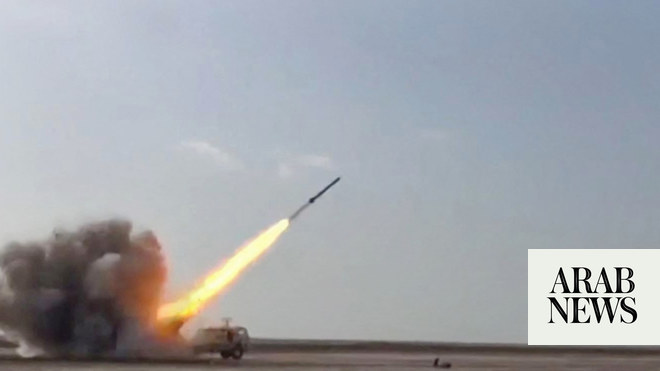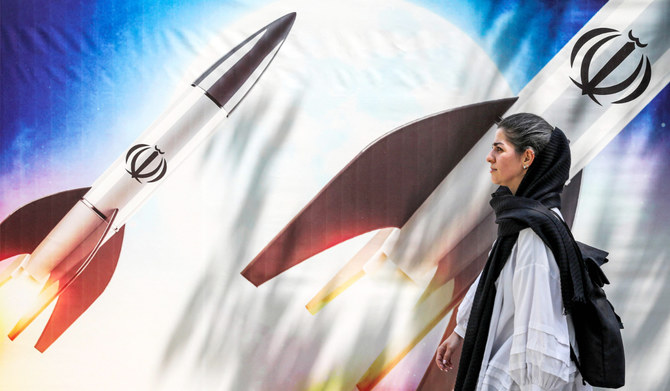
Concerns regarding possible Iranian plans to attack Israel have been increasing. According to a statement from the office of Benjamin Netanyahu, the Israeli prime minister last week warned that the Iranian regime is seeking to “develop precision-guided munitions, missiles that can hit any target in the Middle East with a circumference of five to 10 meters.”
Israel’s warning of potential attacks by the Iranian regime sounds realistic for several reasons. First of all, tensions between the Islamic Republic and Tel Aviv have reached unprecedented levels this year. Israel has been steadily expanding its military campaign against Iranian-linked targets in the region. This included carrying out a series of airstrikes in northern Baghdad in August, which was believed to be the first time in almost four decades that Israel had engaged in military operations on Iraqi soil.
Iran’s military buildup in Syria has also caused serious concerns among the Israeli leaders. The Syrian conflict has provided a perfect environment for the Iranian leaders to continue advancing their hegemonic ambitions and revolutionary ideals. The Iranian regime reportedly has more than 10 military bases in Syria, some of which are near the Israeli border. Tehran has previously used this strategic position to fire rockets into Israel. As Iran’s military adventurism continues to grow in frequency and intensity, Israel has carried out strikes against Iranian military bases and infrastructure in Syria.
Another reason behind the suspicion that Iran may be planning to damage Israel’s national security through hard power is the fact that the Iranian leaders have always strongly declared their intention to destroy Israel. Hossein Salami, commander-in-chief of the Islamic Revolutionary Guard Corps (IRGC), in January stated: “Our strategy is to erase Israel from the global political map. And it seems that, considering the evil that Israel is doing, it is bringing itself closer to that.” In addition, Supreme Leader Ali Khamenei, who has the final say on Iran’s foreign policy, last year posted a Twitter tirade against Israel. It stated that “the Zionist regime will perish in the not so far future.”
Whenever the Iranian regime is pressured geopolitically, it tends to become more belligerent, aggressive and willing to deploy hard power
Dr. Majid Rafizadeh
Meanwhile, four decades of rule by the Islamic Republic has revealed that, whenever it is pressured geopolitically, it tends to become more belligerent, aggressive and willing to deploy hard power. Recent examples include Iran’s harassment of ships in the Strait of Hormuz and its involvement in the September missile and drone attacks on the Saudi Aramco plants at Abqaiq and Khurais. From Tehran’s perspective, its military adventurism can put pressure on the US and its allies to lift sanctions and pursue appeasement policies toward Tehran.
However, one might wonder whether, if Iran intends to attack Israel, it will do so by directly launching missiles. Tehran is unlikely to carry out direct attacks against Israel, whether through the IRGC or its elite Quds Force branch. This is due to the fact that the Iranian regime cannot afford a direct conflict with Israel. Any direct confrontation would most likely drag the US into the equation and tip the balance firmly against Tehran. In addition, although Iran is larger geographically and in terms of population, its military capacity is inferior to that of Israel. And what fundamentally changes the balance of power is Israel’s nuclear capacity, as Tel Aviv is widely believed to have 100 to 200 nuclear warheads that can be used with intercontinental ballistic missiles and nuclear-armed submarines.
The theocratic establishment is also currently facing difficult times economically thanks to the US sanctions that have hit hard on Iran’s energy, banking and shipping sectors. And, just last week, Saudi Arabia, Qatar, Bahrain, Kuwait, Oman and the UAE joined the US in tightening the noose around Iran’s finance network by imposing sanctions on 25 entities associated with the IRGC and its Hezbollah proxy.
As a result, Iran will resort to the type of warfare that it has mastered: Arming its proxies and instructing them to launch missiles and drones into other nations. As Salami has said previously: “Hezbollah has 100,000 missiles that are ready to hit Israel.”
Iran’s threats against Israel should be taken seriously. But since Tehran cannot afford a direct military confrontation — which would be political and military suicide for the ruling clerics — it will most likely employ its proxies to carry out any attacks.
• Dr. Majid Rafizadeh is a Harvard-educated Iranian-American political scientist. He is a leading expert on Iran and US foreign policy, a businessman and president of the International American Council. Twitter: @Dr_Rafizadeh












